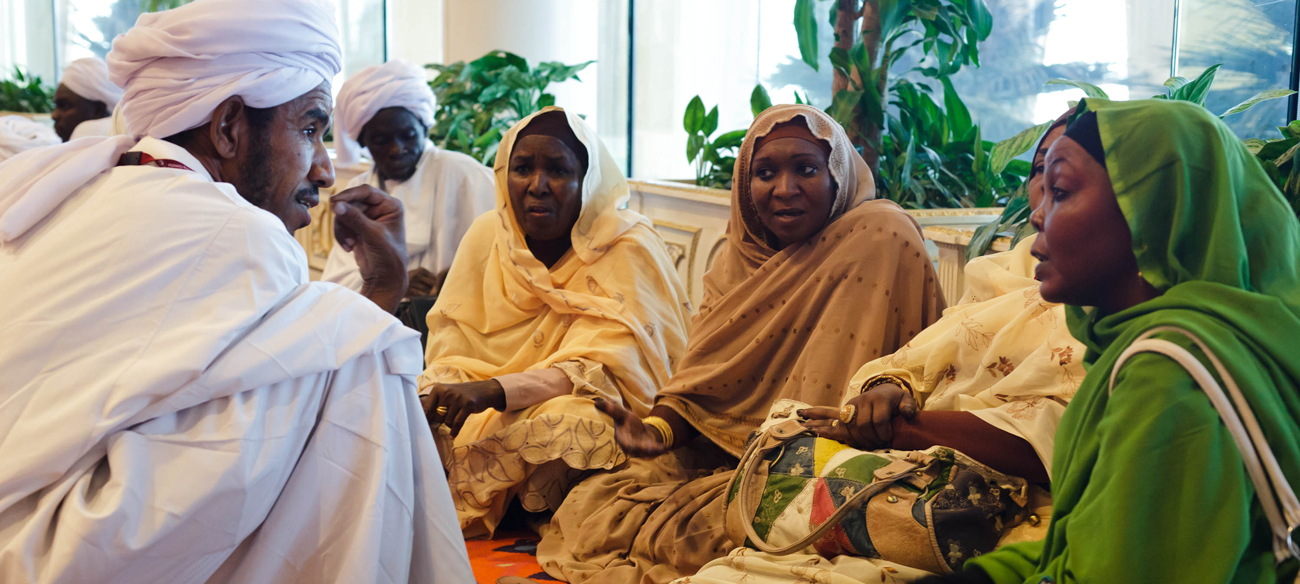Inclusive Peace Negotiations
Inclusive peace negotiations are acknowledged as an important tool in international efforts to support peace processes and political transitions. However, inclusive processes sometimes fail to provide inclusive outcomes. We work to make peace negotiations and implementation meaningfully inclusive by linking the process to these outcomes.
What are inclusive peace negotiations?
When parties in a given conflict agree to prevent or end armed violence and work to sustain peace, the subsequent negotiations commonly involve a broad spectrum of actors and instruments. Civil society in all its complexity often plays a key role, as does the influence of international normative frameworks, such as the 2030 agenda, the Prevention and Sustaining Peace Agenda, the Women, Peace and Security Agenda and the Youth Inclusion Agenda.
These frameworks all highlight the importance of broad participation and that inclusion in peace processes is both a means and an end when it comes to building peaceful and inclusive societies. However, inclusion is also a highly political subject, in need of much more than a solely technical approach. Who is included, how, where, and when – these are all decisions that impact on the power dynamics at work in negotiations.
We work towards inclusive outcomes
Despite a considerable number of efforts and initiatives to promote inclusive arrangements, inclusive processes do not automatically guarantee inclusive outcomes. At Inclusive Peace, our research and practice have prompted us to pose key questions when we work on inclusive arrangements:
- Who is included?
- How, where, and when are relevant decisions made?
- How will different inclusion arrangements impact power dynamics?
- How will those power dynamics determine the shape of a country’s economic, social, and political landscape?
In addition, we are acutely aware that inclusion through representation does not necessarily translate into influence. This is especially the case if elite actors are dissatisfied with the new status quo and resist it.
At Inclusive Peace, we work to make peace negotiations, agreements, and their implementation more meaningfully inclusive. We aim to ensure that inclusive processes provide both short-term stability – by halting violence or preventing its emergence or resurgence – and long-term pathways that lead to peaceful and inclusive societies.
Briefing Note,
Implementing Peace Agreements: From Inclusive Processes to Inclusive Outcomes?_BN
This briefing note summarises the findings of the Inclusive Peace Agreement Implementation research project. It explores how civil society and non-armed actors can participate in and influence peace agreement implementation and if inclusive processes lead to inclusive outcomes.
June 2020Thania Paffenholz, Alexander Bramble,
Report,
Implementing Peace Agreements: From Inclusive Processes to Inclusive Outcomes?
This report summarises the findings of a research project on the implementation of peace agreements. It explores how civil society and non-armed actors can participate in and influence peace agreement implementation and if inclusive processes lead to inclusive outcomes.
June 2020Thania Paffenholz, Alexander Bramble,


